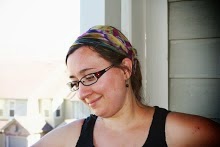This week I finished reading a delightful book by Claire Harman called, Jane's Fame, How Jane Austen Conquered the World. If you read and like Jane Austen, I'd highly recommend this book. Harman writes in an accessible style, mixing her critical research into a flowing narrative. I never knew there was so little biographical information about Jane. So much of her life and work is left to the imagination. Which, I suppose is partly why she is beloved. People can find in her writing, ideas they feel directly relate to them. Jane's characters are friends to any who desire their companionship.
Now, I am admittedly not a Jane Austen addict because I've not even read all of her novels. But I want to. She intrigues me. And the ones I have read I've liked. I appreciate her work, but I do not moon over Mr. Darcy.
While reading, I was surprised and a little disturbed that Jane Austen is considered the mother of the romance genre. I rather mock romance novels, but found this passage fascinating:
When the American imprint Silhouette Romances was being planned in the 1970s, everything in them was written to a formula developed by market research: Even the name of the series (perhaps subconsciously evoking Austen) came from a consumer survey result. A group of women readers were asked what the ideal attributes of a romantic novel were, from the age of the heroine to the overall length of the book. The resulting tip sheet for writers could just as easily be applied to Austen's novels: the heroines were always to be "young and virginal," the heroes "strong and assertive," the plots utterly predictable, and the endings happy. There was to be no violence, blood, or pain; no slang language or obscenity, and no premarital sex. The heroine's age should be between nineteen and twenty-seven, and she should not be "beautiful in the high fashion sense." The hero should be eight to twelve years older than the heroine, "not necessarily handsome," but virile and not married, though he could be bereaved or divorced--as long as that wasn't his fault. Austen's novels clearly contributed to this formula as well as shared the basic instincts behind it.
Of course Harman doesn't leave it completely at that, she goes on to show the differences (and Austen definitely wins my favor, while romance novels will continue to get a bad rap from me). Austen's books obviously are devoid of much physical contact between men and women. But according to Harman, "the very absence of explicit eroticism leaves her books charged with sexual feeling...In a permissive age, the restraint and decorousness of her loves scenes seem in themselves erotic, and the idea of the heroines attracting so much male attention by making so few sexual concessions becomes, for the modern woman, an unattainable fantasy of female empowerment."
Interesting, at least. Have you read all of Jane Austen? What's your favorite?
6 months ago








1 comments:
I have read all of Jane Austen, though I too do not swoon over Mr. Darcy. Your new literary find intrigues me... I will have to peruse it. As for my favorite... Emma. :)
Post a Comment